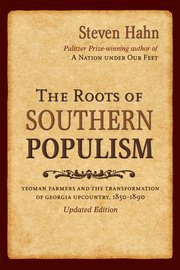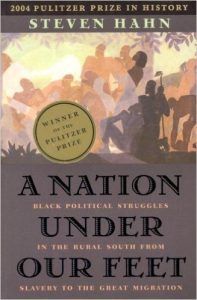On February 26-27 2018, The History Department at the University of Texas at Austin was pleased to welcome Dr. Manisha Sinha, Professor and James L. and Shirley A. Draper Chair in American History at the University of Connecticut, as the featured speaker for The Littlefield Lecture Series. Dr. Sinha’s first lecture, titled “Abolition and the Making of Southern Reaction,” is featured here.
Watch Professor Sinha’s second lecture on Not Even Past, titled “The Van and the Rear: Abolitionist Roots of Radical Reconstruction:”
You may also like:
15 Minute History Episode 105: Slavery and Abolition with Dr. Manisha Sinha
Reconstruction in Austin: The Unknown Soldiers by Nicholas Roland
Work Left Undone: Emancipation was not Abolition by George Forgie
The views and opinions expressed in this article or video are those of the individual author(s) or presenter(s) and do not necessarily reflect the policy or views of the editors at Not Even Past, the UT Department of History, the University of Texas at Austin, or the UT System Board of Regents. Not Even Past is an online public history magazine rather than a peer-reviewed academic journal. While we make efforts to ensure that factual information in articles was obtained from reliable sources, Not Even Past is not responsible for any errors or omissions.


